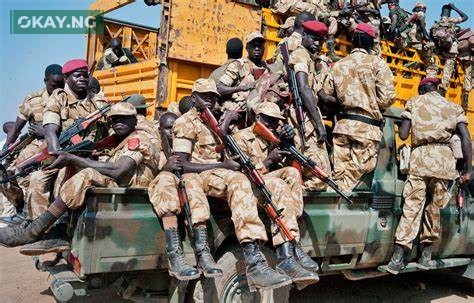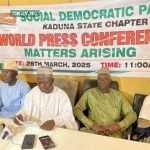The specter of renewed civil war looms over South Sudan, prompting the United Kingdom to issue a stark warning to its citizens: leave now. This urgent advisory, released Thursday, reflects the deepening anxieties of the international community as political tensions between President Salva Kiir and First Vice-President Riek Machar reach a critical point.
“If you are in South Sudan and judge it safe to do so, you should leave now,” the UK Foreign Office stated, reinforcing its existing advisory against all travel to the volatile nation. This directive, while concise, carries the weight of impending crisis. It’s a call driven by tangible fears – fears that many South Sudanese residents themselves share.
The current escalation follows Machar’s party’s assertion that his alleged house arrest has effectively nullified the fragile peace agreement that ended the devastating 2013-2018 civil war. A conflict that, let us not forget, claimed hundreds of thousands of lives and displaced millions. This collapse, if confirmed, throws the nation back into the abyss of uncertainty.
Western nations, including the United States and Germany, have already taken precautionary measures, either closing their embassies or drastically reducing operations. This collective action underscores the gravity of the situation, signaling to the world that the threat is real and immediate.
“South Sudan’s leaders must make efforts to de-escalate,” British Foreign Minister David Lammy stated on X, a sentiment echoed by the United Nations and other Western powers. This plea for restraint, while necessary, also reveals a sense of helplessness, a recognition that external actors can only implore, not dictate.
Read Also: US Orders Non-Emergency Personnel Evacuation Amid Escalating South Sudan Security Crisis
I’ve seen countless reports of political strife, but the human cost of this potential conflict is what truly resonates. We’re not just discussing political maneuvers; we’re talking about the lives of ordinary people – families, children, and communities – who face the prospect of renewed violence. The fear of displacement, the anguish of losing loved ones, and the struggle for survival are not abstract concepts. These are the realities that South Sudanese citizens are grappling with.
The implications are profound. A return to conflict would not only destabilize South Sudan but also have ripple effects across the entire East African region. The humanitarian crisis would inevitably worsen, placing an immense burden on neighboring countries and international aid organizations.
Furthermore, the collapse of the peace deal raises critical questions about the effectiveness of international mediation efforts. It serves as a stark reminder that peace is not merely a signed document, but a fragile and constantly evolving process that requires sustained commitment and trust.
The situation in South Sudan is a stark reminder that political stability is not a given. And as the world watches, the urgent question remains: can South Sudan’s leaders pull back from the brink, or is the nation destined to relive its tragic past?













